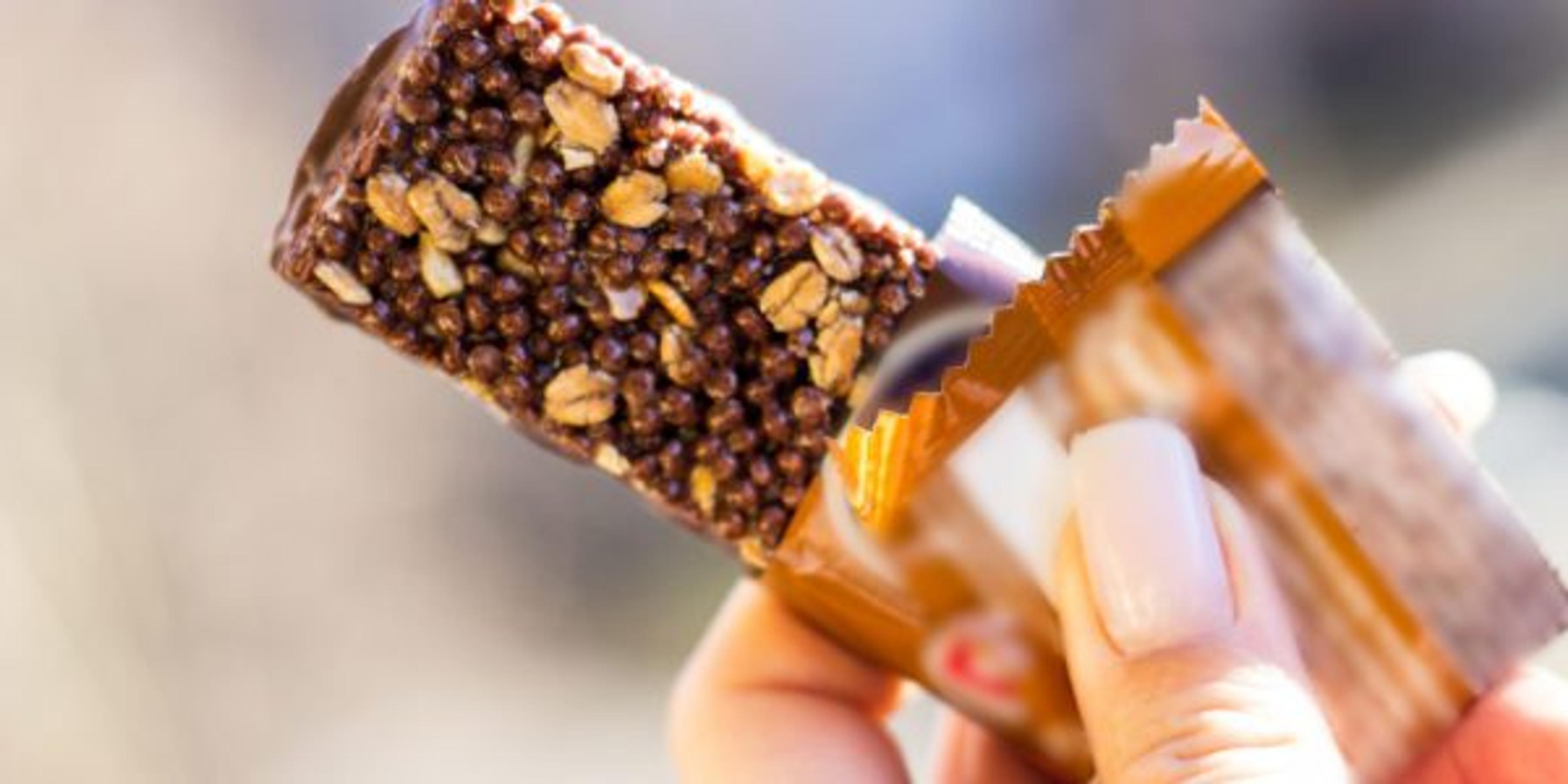A Peek Inside Protein Bars
| 2 min read

Protein bars can be convenient options for a snack on-the-go, fueling pre- or post-workout, busy days and packing in your suitcase for traveling.
However, selecting a healthy protein bar can be more difficult than picking a delicious flavor in the grocery aisle. Because sugar is often added to make the bars taste good, the trade-off is a product resembling a candy bar more than a healthy option.
Here’s what to look for on the label:
- Fat. Good fats like nuts and seeds should be prioritized over oils that act as fillers in bars. They also pack in additional benefits such as fiber and micronutrients.
- Calories. If the bar is meant as a snack, opt for one that has 100-200 calories. But if the bar is replacing a meal, choose one with 300 calories or more to ensure you stay full until your next meal.
- Sugar. Some popular protein bars have sugar as the first ingredient masked with healthy-sounding names such as brown rice syrup. The best bars have less than 7 grams of sugar on the Nutrition Facts label. Moreover, be on the lookout for sugar alcohols such as xylitol, erythritol and maltitol. Though they add low-calorie sweetness, they can leave you with gas and abdominal pain.
- Carbohydrates. Complex carbohydrates take longer for your body to break down, providing you with longer-lasting energy. Opt for bars with oats, quinoa, brown rice and fruit in the ingredient list.
- Fiber. High-fiber foods help keep you fuller for longer. Aim for a bar containing at least 3 grams of fiber. Bars that have 5 grams of fiber are keepers. All fibers aren’t good fibers though. Like sugar alcohols, excess synthetic fibers like soluble corn fiber or chicory root can lead to uncomfortable digestive aftermath.
- Protein. Among the best sources of protein for bars are whey protein, egg whites, nut butters, nuts and seeds. Look for 15-20 grams to help keep you full.
The best protein bars contain healthy proteins and fats while adding limited sweetness from fruit or other natural sources.
Related:
Photo credit: Getty Images





